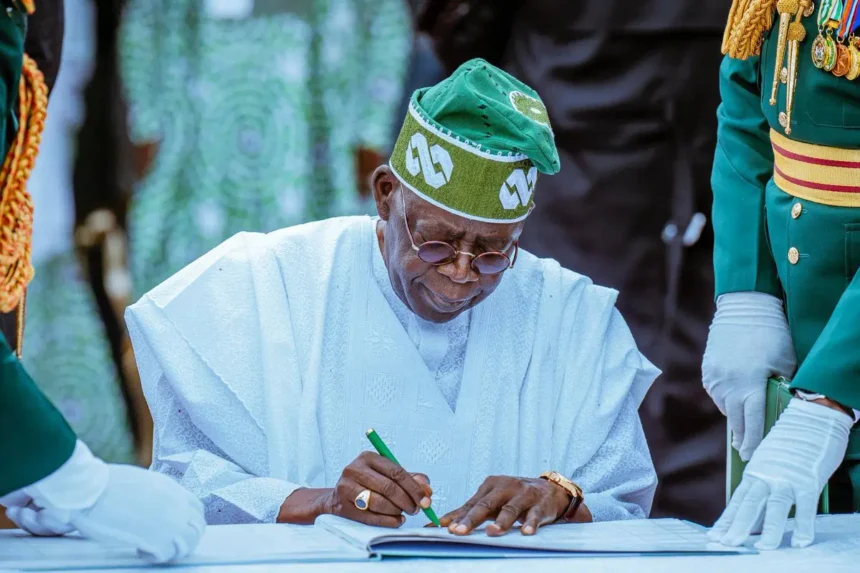President Bola Tinubu has given approval for the introduction of a 15 per cent ad-valorem import duty on petrol and diesel brought into the country.
The new tariff structure, according to the government, is designed to safeguard the interest of local refiners and promote market stability in the downstream oil sector, though it may slightly push up retail prices at the pump.
In a letter dated October 21, 2025 — made public on October 30, 2025 — and addressed to the Federal Inland Revenue Service (FIRS) and the Nigerian Midstream and Downstream Petroleum Regulatory Authority (NMDPRA), the President ordered immediate enforcement of the import duty. The communication, signed by his Private Secretary, Damilotun Aderemi, confirmed that the approval followed a formal proposal from the Executive Chairman of FIRS, Zacch Adedeji.
Adedeji’s proposal had recommended a 15 per cent duty on the cost, insurance, and freight (CIF) value of imported petroleum products to align import costs with domestic market realities and promote fair competition.
Explaining the rationale behind the decision, Adedeji stated in his memo that the new duty was part of a broader economic reform aimed at boosting local refining capacity, promoting energy security, and stabilising the naira through crude transactions conducted in local currency.
“The core objective of this initiative is to operationalise crude transactions in local currency, strengthen local refining capacity, and ensure a stable, affordable supply of petroleum products across Nigeria,” Adedeji stated.
He warned that the continued disparity between the cost of locally refined products and import parity pricing had created volatility in the petroleum market.
“While domestic refining of petrol has begun to increase and diesel sufficiency has been achieved, price instability persists, partly due to the misalignment between local refiners and marketers,” he noted.
The FIRS boss further explained that import parity pricing — used to set retail prices — often drops below cost-recovery levels for domestic refiners, especially during foreign exchange and freight fluctuations, leaving local producers at a disadvantage.
According to him, the government’s responsibility was now “twofold, to protect consumers and domestic producers from unfair pricing practices and collusion, while ensuring a level playing field for refiners to recover costs and attract investments.”
Adedeji maintained that the new tariff framework would discourage duty-free imports that undermine local production and help build a fairer, more competitive market for refined products.
Government projections show that applying a 15 per cent import duty could raise the landing cost of petrol by roughly N99.72 per litre.
“At current CIF levels, this represents an increment of approximately 99.72 per litre, which nudges imported landed costs toward local cost-recovery without choking supply or inflating consumer prices beyond sustainable thresholds. Even with this adjustment, estimated Lagos pump prices would remain in the range of N964.72 per litre ($0.62), still significantly below regional averages such as Senegal ($1.76 per litre), Cote d’Ivoire ($1.52 per litre), and Ghana ($1.37 per litre).”
The approval comes as Nigeria works to reduce its heavy reliance on imported petroleum products and strengthen domestic refining capacity.
The 650,000-barrel-per-day Dangote Refinery in Lagos has already begun producing diesel and aviation fuel, while smaller modular refineries in Edo, Rivers, and Imo states are ramping up operations to refine petrol on a limited scale.
Despite these milestones, petrol imports still account for roughly 67 per cent of the country’s total demand, underscoring the urgency behind the President’s latest directive.

